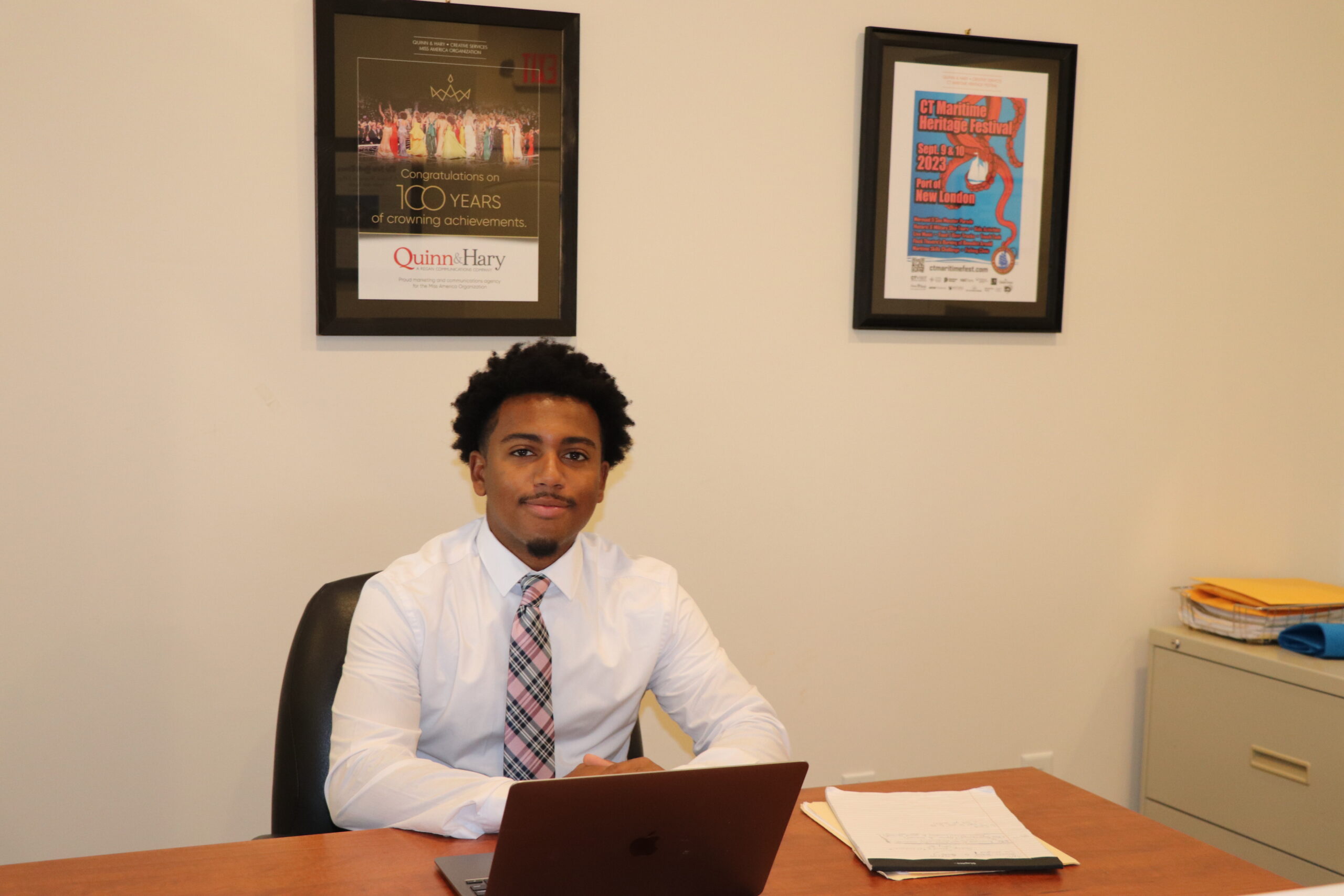Strong Foundation of Abilities Helps Student Juggle Athletics, Honors, Internship
A Mitchell baseball player and Honors Program student, senior business major Savier Paige balances schoolwork, practice, and an internship.
He is grateful to use the technology, communication, and problem-solving abilities gained through Mitchell’s Ability Model, woven throughout the curriculum. Savier applies the skills at his internship with Quinn, Hary & Gellar, a New London marketing and communications firm.
Mitchell College requires every student to complete an internship.
“I found my internship by working with Paul Dunn in the Integrative Career Development office. I was looking for an opportunity that would align with what I want to do long-term for a career.”
During his semester-long internship, he works two to three days each week in the office.
“My days vary, posting calendar listings for clients on various websites and platforms. I also search for visual assets in the public domain that can be used in design. Then I keep track of the details on an Excel spreadsheet—whether they are videos or photos, horizontal or vertical—and do other tasks. Sometimes I figure out how to get information on my own, thinking of different ways to get it, working down the ladder,” he said.
“I had the opportunity to sit in a meeting for the firm’s biggest client, helping plan a 60th anniversary celebration. We talked about costs, food, promotional levels for sponsors, a silent auction, and other things. I was able to give input on the design of a brochure, sharing my ideas on what I thought was visually appealing.”
The thing he likes best about his internship is building connections with the people who work at the firm.
“My favorite part of my internship is the people. Everyone is high energy and conversations are exciting. It’s a small group that feels like a family. I love to come to the office every chance I get, and I am comfortable enough that I can ask for help from anyone.”
Looking Toward the Future
When he graduates, Savier said he will probably seek opportunities in marketing and sales. He also has an interest in gaining experience in public relations, graphic design, and web design.
“As I am exposed to more, I can figure out exactly what I would like to pursue.”
Back on campus, Savier said that sometimes it’s challenging to balance everything. He attributes his success to his favorite Mitchell traits: a calm and beautiful location on the water and a strong, close-knit community that feels like a family.
“Everybody cares about each other in our school whether they know someone or not. And that creates a family within the school.”
Looking toward the future, Savier said, “Mitchell has prepared me in a great way for after graduation. I get one-on-one interaction with professors, and the opportunities outside of school are better, in my opinion, than at a bigger school. I enjoy focusing on what I need to get done to prepare myself for the future and look forward to looking back and thanking Mitchell.”

